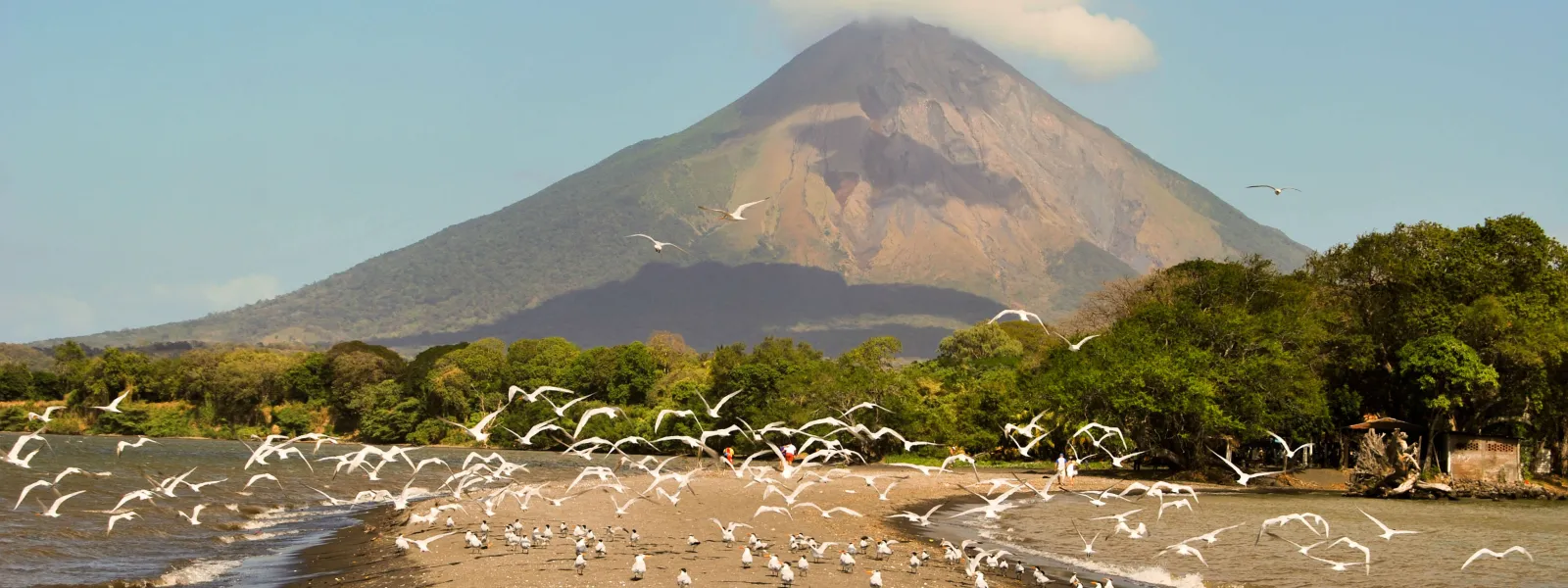
Yearning for better times for Nicaragua
Photo: Zhu / Flickr.Leaving your country behind is an act of courage, especially when you don’t have much.
My grandparents were courageous—they fled Nicaragua’s armed conflict in the 1970s, arriving in Costa Rica with nothing but three children in their arms and the hope for a better future.
Costa Rica treated them well, and their grandchildren have been able to lead lives of privilege and opportunity. But my grandmother has always dreamed of returning to her country one day. And although I feel proudly Costa Rican, I have learned to love Nicaragua too, especially after getting to know it.
Since April, Nicaragua has been in the midst of an armed conflict that has given rise to a large-scale humanitarian crisis. As the conflict continues, the number of people trying to flee Nicaragua has grown, as have requests for asylum in Costa Rica. As of August, more than 300 people had been killed since the conflict began.
Unfortunately, the crisis doesn’t seem to be coming to an end anytime soon.
Given the urgency of the situation, in May the Inter-American Commission on Human Rights created a Rapid and Integrated Response Coordination Unit with the mission of paying special attention to the human rights situation in Nicaragua.
That month, members of the Commission visited cities at the center of the conflict: Managua, Masaya, León and Matagalpa. The resulting report presents evidence of gross human rights violations that have occurred during the country’s social protests. Among those violated were the rights to life, physical integrity, health and medical treatment, freedom of expression and of the press, and freedom of movement.
The Nicaraguan State is obligated to guarantee those rights under international law.
Thanks to social media, it has been possible to stay informed of what’s been happening in Nicaragua, practically in real time. You can get constant information via Facebook or Twitter by searching the hashtag #SOSNicaragua.
The Commission also regularly publishes information on Facebook and Twitter.
If you’d like to do something for those affected by the conflict in Nicaragua, you can donate to the Nicaraguan Association for Human Rights or the non-profit organization SOS Human Rights Nicaragua from Costa Rica, which works to support Nicaraguans here in Costa Rica.
My grandmother never saw a Nicaragua free of human rights violations. She has always wanted to return to the land where she grew, where her parents were born and where one of her sisters still lives.
I hope that everyone who has had to flee Nicaragua during this conflict will be able to return and see their country free, while also fully enjoying their human rights.
Hopefully, through democracy, peace will return to that beautiful nation.
Magie Rodríguez

Magie Rodriguez is Costa Rican and AIDA's attorney with the Ecosystems Program, working from San Jose. She has a degree in Law, with a focus on environmental law, from the University of Costa Rica. There she assisted with research on environmental law and agronomy, and developed various extracurricular activities related to marine biology. Through AIDA she contributes to the conservation of the marine and coastal environment of Latin America, especially in the conservation of key ecosystems such as coral reefs.
